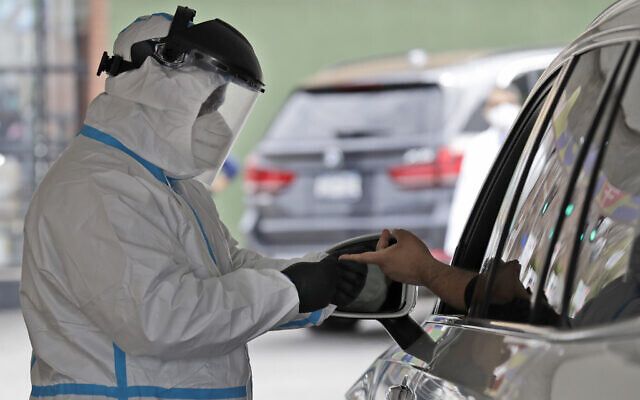The World Health Organization has pushed back against the theory that individuals can only catch the coronavirus once, as well as proposals for reopening society that are based on this supposed immunity.
The health body tweeted that it was continuing to review the evidence on antibody responses to COVID-19, adding that most studies suggest that people who have recovered from the infection have antibodies to fight the virus.
“However, some of these people have very low levels of antibodies in their blood,” it said.
It also advised against the use of so-called “immunity passports,” which have been mooted in some countries as a way to enable people to travel or return to work on the assumption that they are immune to the virus.
At this point in the pandemic, the WHO said, there is not enough evidence about the effectiveness of antibody-mediated immunity to guarantee the accuracy of such passports or “risk-free” immunity certificates.
Most people who are infected with COVID-19 will develop an antibody response that will provide “some level of protection,” it later clarified, but it does not yet know what that level is or how long the immunity will last.
“It’s surprising, but it’s not surprising,” said Joseph Fair, a virologist and NBC News science contributor. “With most viruses, you do get some kind of immunity, so it’d be surprising if there is no immunity from it, but only time will tell us what type of immunity you have from COVID-19 if you have recovered and how long that will last.”
The WHO warning comes as the worldwide death toll for the coronavirus surpassed 200,000 on Saturday, according to a tally by Johns Hopkins University, with the total number of confirmed cases worldwide now standing at nearly 2.9 million.
In the U.S., more than 53,000 people have died from the virus, with the number of confirmed cases nearing one million.
As the country continues to battle the epidemic, the White House is considering scaling back President Donald Trump’s daily briefings on the coronavirus situation as Trump’s aides and allies are increasingly worried that his lengthy appearances are backfiring politically.
Those concerns reached an inflection point when the president suggested Thursday that people might be able to inject household cleaning items or disinfectants to deter the coronavirus, prompting backlash from the medical community. Trump later said his remarks were sarcasm.
After the U.S. saw nationwide protests over stay-in-place orders, anti-lockdown protesters in Germany’s capital, Berlin, demonstrated Saturday against the coronavirus restrictions.
They shouted “I want my life back” and held up signs with slogans calling for greater freedom and protection of constitutional rights.
Police said on Twitter they had arrested more than 100 people, Reuters reported.
In the U.K., the number of death has passed 20,000 on Saturday, according to the country’s health officials, making it one of only five countries to reach the grim milestone. Prime Minister Boris Johnson will return to his duties on Monday after a bad bout of COVID-19 that saw him treated in intensive care earlier this month.
Spain, the second hardest-hit country in Europe, will allow people out to exercise starting May 2 if the number of new coronavirus cases continues to fall. That comes as the nation recorded the lowest number of new deaths in more than a month on Sunday.
Meanwhile, China, where the epidemic began, said Sunday it had confirmed 11 new cases of the coronavirus, bringing the nationwide case tally to 82,827. There were no reported deaths for the eleventh day in a row.








